In a fast-paced world filled with technology and automation, it’s often the simple and timeless crafts that hold a special place in our hearts. Among these cherished art forms is the age-old tradition of sewing, a skill that has been woven through the fabric of history for centuries. Whether you’re a novice seeking to embark on your stitching journey or an experienced needle wielder looking to broaden your horizons, this article is your ultimate guide to mastering the art of thread and needle. Prepare to unravel the secrets of essential sewing stitches, those magical little loops that transform ordinary fabrics into works of wearable art. It’s time to dust off your thimble, thread that needle, and let your creativity take flight as we embark on this enchanting journey of patterns, textures, and the satisfying dance of fabric and thread.
Understanding the Basics: The Key Sewing Stitches You Need to Master
Embarking on a sewing journey can be thrilling, but it’s important to start with a solid foundation. You don’t need to learn every single stitching technique out there, but having a grasp of the key stitches will give you the confidence to tackle any project. Let’s take a closer look at some of these essential stitches to help you thrive in the world of sewing.
- Straight Stitch: The bread and butter of sewing, the straight stitch is as simple as it gets. This stitch provides a clean and sturdy seam, making it perfect for joining fabric pieces together.
- Zigzag Stitch: Widely regarded as one of the most versatile stitches, the zigzag stitch is ideal for reinforcing seams and preventing fraying. It also comes in handy for creating decorative effects, adding a touch of flair to your projects.
- Backstitch: When you need extra strength and durability in your seams, the backstitch is your go-to. A handy stitch for securing hems, it prevents unraveling and ensures your creations stand the test of time.
Now that you have familiarized yourself with the basics, it’s time to delve into the world of decorative stitches and take your sewing projects to the next level. Decorative stitches can truly elevate your creations, giving them a unique and personal touch. But where should you start? Consider trying out the satin stitch, which is perfect for creating filled areas with a smooth and sleek finish. Another versatile stitch is the blanket stitch, which not only adds a decorative border but also prevents fraying along the edges. With these stitches in your repertoire, exploring the realm of decorative sewing will be a delightful adventure.
Q&A
Q: What are some essential sewing stitches every beginner should master?
A: Just as a painter has a palette of colors, a sewer has a repertoire of stitches. Some essential stitches to learn include the running stitch, backstitch, whipstitch, blanket stitch, and slip stitch. These stitches will serve as your foundation in the art of sewing.
Q: How can I perfect the running stitch?
A: Mastering the running stitch is all about finding the right balance between speed and precision. Start by threading your needle and knotting the end of your thread. Then, take small and even stitches through the fabric. Remember to maintain a consistent stitch length while also ensuring the thread tension is neither too tight nor too loose.
Q: What makes the backstitch so essential in sewing?
A: The backstitch is known for its strength and durability, making it ideal for seams that need extra reinforcement. To execute a perfect backstitch, begin by stitching a small backward stitch, followed by a longer forward stitch. Repeat this process, alternating between forward and backward motions, to create a continuous and robust stitch.
Q: What is the whipstitch used for?
A: The whipstitch is a versatile stitch that is commonly used for joining two pieces of fabric together. It creates a visible line of stitches, often seen on the edges of hems and seams. To execute the whipstitch, insert the needle through the fabric’s edge, then pierce through the opposite piece. Repeat this motion, creating interlocking stitches along the edge.
Q: When should I use the blanket stitch?
A: The blanket stitch is primarily used for decorative purposes, as it adds a stylish and polished touch to fabric edges. Its primary function is to prevent fraying. To create the blanket stitch, bring the needle up through the fabric’s edge, leaving a small loop. Insert the needle back into the loop and pull tight. Continue the process, creating evenly spaced loops.
Q: How can I effectively use the slip stitch for a seamless finish?
A: The slip stitch is the go-to stitch when aiming for an invisible and seamless finish. It is often used for hems and closures. To execute a slip stitch, fold the fabric’s edge and bring the needle up through the folded edge. Insert the needle through the opposite side, catching just a few threads. Repeat this “slip” motion to create nearly invisible stitches.
Q: Are there any additional stitches worth exploring beyond the essentials?
A: Absolutely! Once you have mastered the essential stitches, you can delve into an array of specialized stitches, such as the French knot for detailed embroidery, the blind hem stitch for barely visible hems, and the buttonhole stitch for securing buttons. Expanding your stitch knowledge opens up a world of possibilities within the art of sewing.
Q: What tips can you provide for perfecting sewing stitches?
A: Practice and patience are key when perfecting your sewing stitches. Remember to maintain proper tension in your thread, use the appropriate needle size for your fabric, and always ensure sharp scissors for neat cutting. Additionally, take your time and enjoy the process. Sewing is an art form that rewards both precision and creativity.
Key Takeaways
As we conclude this thread-filled journey through the captivating world of sewing stitches, we hope you have unraveled the mystery behind each essential technique. The art of sewing is not merely about stitching fabrics together; it is a dance between creativity and precision, weaving stories and memories with each delicate needle movement.
By mastering these foundational stitches, you have opened the doors to a plethora of possibilities. From mending a beloved garment to creating exquisite pieces of wearable art, your newfound skills will continue to shape your journey as a seamstress, or seamster, breaking the traditional boundaries of gender norms.
Remember, dear reader, that every stitch you make carries with it a piece of your unique personality and imprints a mark of your creative spirit onto the fabric of time. Whether it be the steadfast straight stitch, the elegant whipstitch, or the enchanting blanket stitch, each thread holds a story waiting to be told.
As you set off on your sewing endeavors, armed with your needle and thread as your artistic weapons, embrace the joys of imperfection and the thrill of experimenting. Allow your imagination to dance through every seam, transforming humble fabrics into remarkable creations that bear your touch of creativity.
May the journey to mastering the art of thread and needle be one of endless inspiration, continual growth, and boundless satisfaction. Now, go forth with confidence and embark on your sewing adventures, for the world is your canvas and the stitches, your brushstrokes. Happy sewing!
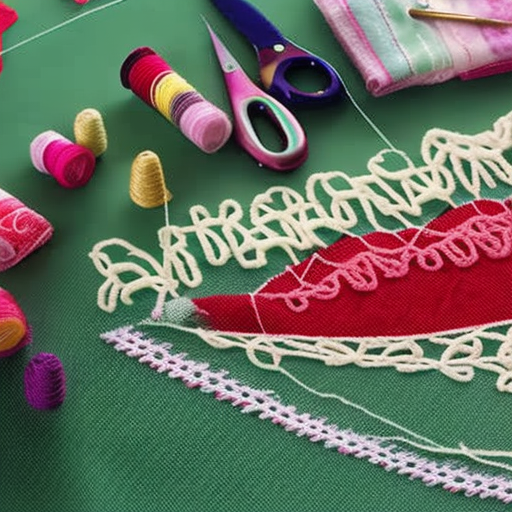
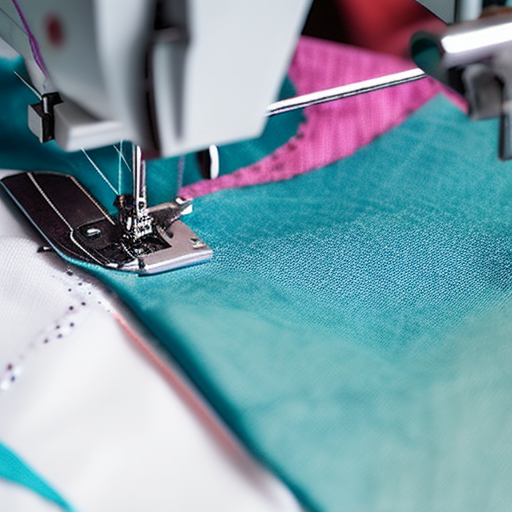
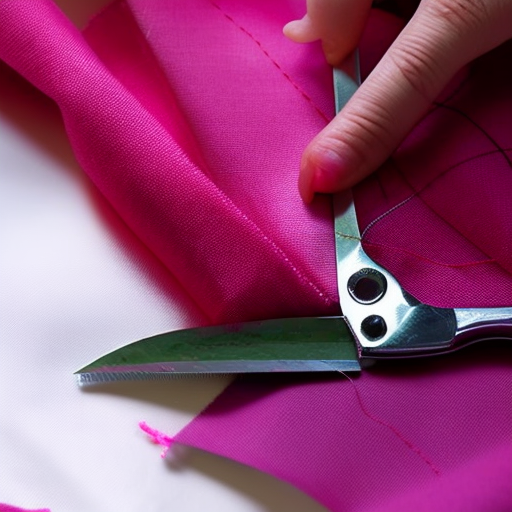
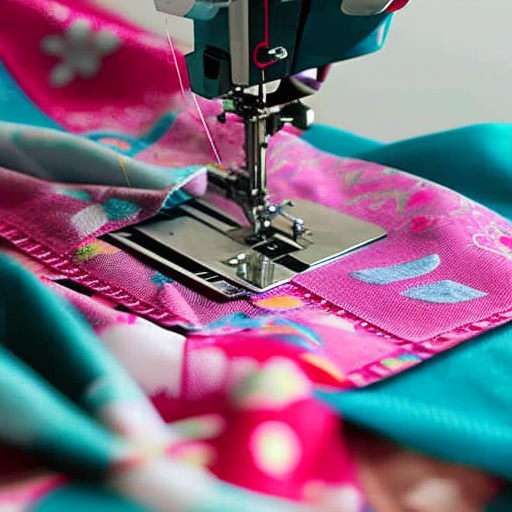
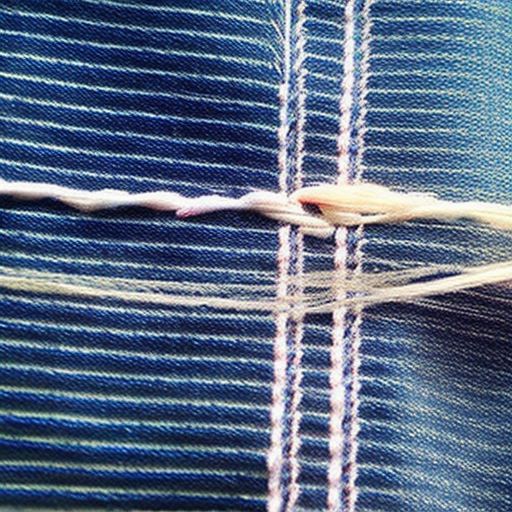
Impressive! I can’t wait to learn some new stitches!
Kara Pennington: Absolutely! I’m so excited to learn more about the art of sewing.
This is an incredible opportunity for those interested in mastering the art of sewing! Stitching is a skill that can be enjoyed for a lifetime, and this rich guide provides essential information anyone needs to uncover the secrets of successful sewing.
I’m so stoked to start learning more about the art of thread and needle – thanks for offering this amazing resource!